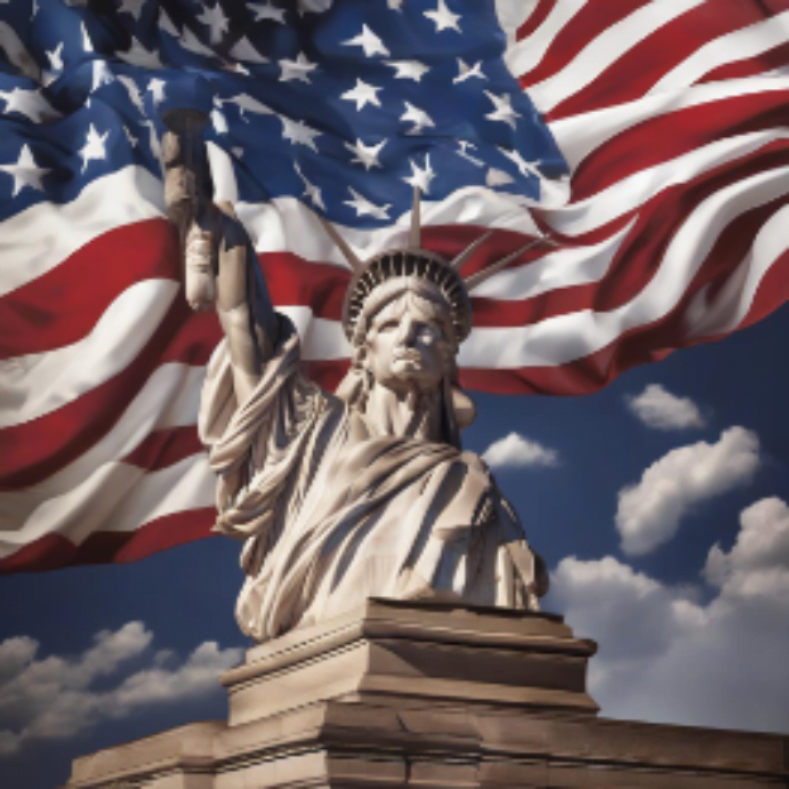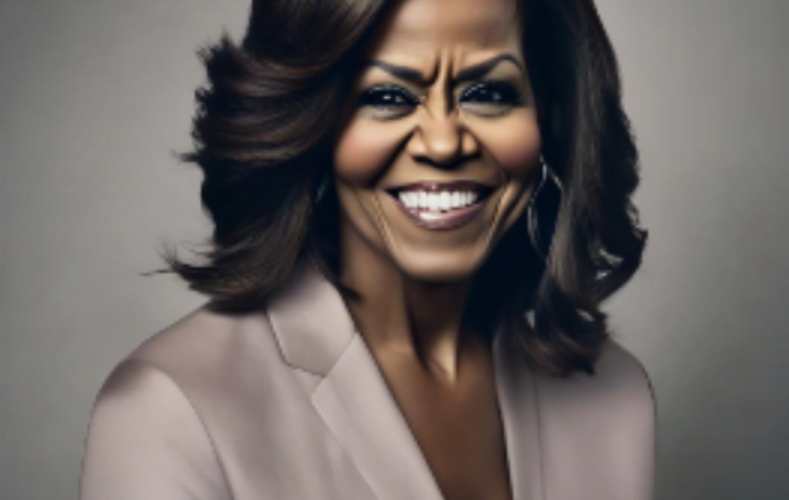In the vast expanse of American politics, there has been a rising and, for some, alarming trend of precisely what former First Lady Michelle Obama has expressed concern over.

Michelle Obama Scared?
During a recent appearance on Jay Shetty’s “On Purpose” podcast, she placed her apprehensions regarding the country’s political climate into words, revealing that the brewing uncertainty ahead of the 2024 presidential race leaves her “terrified.”
The anxieties of one of America’s prominent public figures are not simply an indication of personal apprehension but serve as a cautionary tale about the future of American democracy and the importance of who holds the authoritative, influential position of president.
Reflecting on the magnitude of this role, Michelle Obama marked, “Our leaders matter. Who we select, who speaks for us, who holds that bully pulpit – it affects us in ways that sometimes I think people take for granted.” I find it ironic considering she helped campaign for Joe Biden to become president of the United States of America.
Indeed, this is a call to all citizens not to discount the weight of their electoral decisions. It accentuated that the individual selected into office represents not just a single fraction of society, but in a broader sense, a selected voice speaking on behalf of a diverse nation. Thus, the concerns of Michelle Obama also, in essence, reflect potential apprehensions amongst the larger populace, raising questions about the effectiveness of the governmental structure.
Michelle Obama’s concerns aren’t merely unwarranted assumptions or fear-mongering but are stemmed in a solid understanding of the inherent power held by a government, that’s the true scary part. Government should never have more power than the people it’s supposed to represent.
Castigating the lackadaisical approach of some citizens towards the government, she shared, “The fact that people think that government ‘eh, does it really even do anything?’ & I’m like ‘Oh my God, does government do everything for us, and we cannot take this democracy for granted.'”
Her fears represent a stark warning of the long-lasting ramifications that an undermined democracy can bring. Indifference towards the government’s role can lead to an unquestioned acceptance of practices that may potentially threaten the very core of democracy. Something the left and it’s agenda refuse to see that they took too are extremely at fault for the same criticisms.
Tokenism in such a context can lead to a forgetfulness regarding the foundational tenets of a democratic system – equality, liberty, and justice.Yet, without specifically naming names, she evidenced concerns over the “tone and tenor” of messages among leaders, underscoring the crucial role that a leader’s delivery of ideas can have on the overall dynamic of socio-political discourse.
Interestingly enough there was still no mention or realization that the same person she and her husband help campaign to be president of the United States right now can’t even speak a coherent sentence.
Leading figures, especially those holding power, can shape public discourse and mold public opinion with persuasive communication. Hence, the ‘how’ of their messages indeed matters, equally, if not more, than ‘what’ they communicate.
Oblivious
Further, she pointedly suggested a prevailing double standard surrounding President Donald Trump’s indictments. Here, Michelle Obama inserted a crucial contemplation of racial disparity into the broader discourse. She articulated, “There is a double standard. I do not believe a Black man in America could face 4 sets of criminal charges and still run for president in the USA.”
This statement characterizes a stark critique of the contradictions and double standards in the political sphere, where socioeconomic position and racial privilege dominate the otherwise equitable and democratic procedures. It brings to light not just an embedded systemic bias in political processes but also the collective societal norms that sanction such incongruities.
But what is not talked about nor would she feels realize is the fact that Trump’s four indictments sheds light on the witch hunts and the disparity of equal justice for all that many minorities have suffered from because the police or the government just wanted to be right when they have been so wrong. Many black people that I have spoken to have said that it should slide on what they go through and their people go through on a daily basis.
Many minorities I have witnessed have said that they don’t like Trump but they see that the system is rigged against those who they don’t like. Moreover, what they think they are doing to distance Trump from everybody else is actually bringing him closer because this is something relatable that many people of color go through on a daily basis whether it’s for just or unjust reasons.
Michelle Obama’s recent expression of fear mongering regarding the 2024 presidential race isn’t just a simple pronouncement of apprehension. It encapsulates several profound implications about the contemporary political climate, the prevailing societal norms, and systemic biases. Her concerns are an invitation to engage, reflect, and reconsider the collective power of citizens in shaping the future of the nation.
Moreover, her words, ironically, provide a wake-up call to the average citizen, reminding us not to take democracy for granted, no matter who’s in office, to realize the elemental power a government possesses, and to deem political leaders accountable.
Amid vast societal and political disparities, taking moral and political responsibility has never been more crucial for the preservation and enhancement of democracy.
